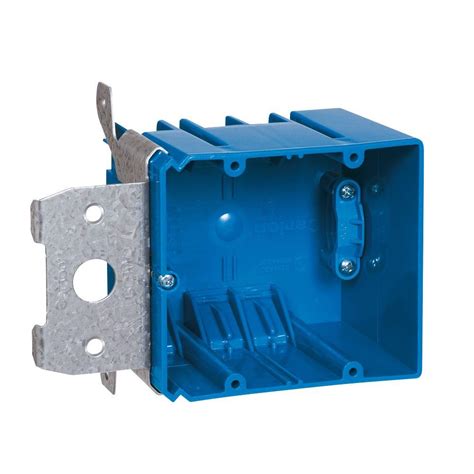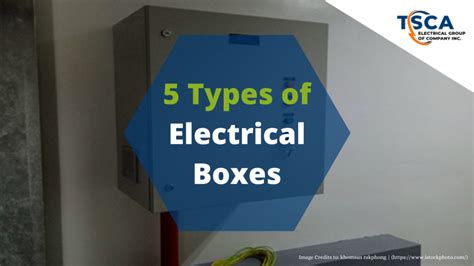can electrical boxes touch Bad splices can cause electrical arcs and fires, so the National Electrical Code (NEC) requires six inches of free conductor at every electrical box. Over time, though, conductors tend to get shorter as people swap out . As of Sep 22, 2024, the average hourly pay for a Cnc Operator in the United States is $23.65 an hour. While ZipRecruiter is seeing hourly wages as high as $33.17 and as low as $14.18, the .
0 · why plastic electrical boxes
1 · when to use electrical box
2 · plastic electrical boxes
3 · plastic electrical box problems
4 · plastic electrical box cons
5 · electrical box vs plastic box
6 · electrical box pros and cons
7 · do it yourself electrical box
What is a pullbox in electrical installation? In electrical installations, pull boxes serve as indispensable components that ensure both safety and efficiency. Pull boxes are enclosures used to facilitate the pulling, splicing, and maintenance of electrical wiring within a conduit system.
It is recommended but not required that you use a plastic electrical box when you have Romex (or NM) cables leading in or out of the box. The electrical code does not require . If you suspect water has entered an electrical box, turn off the power, do not touch the water or box, and contact a qualified electrician for assistance. Ignoring the issue or attempting DIY repairs can lead to severe .
The safe parts to touch are the plastic, of course, and the metal frame that holds the outlet into the electrical box (the yoke). Of course, this is in a correctly wired installation .

Bad splices can cause electrical arcs and fires, so the National Electrical Code (NEC) requires six inches of free conductor at every electrical box. Over time, though, conductors tend to get shorter as people swap out .Electrical boxes are a fundamental component of any electrical system, playing a crucial role in safety and functionality. Understanding the different types and their applications can help you .
Yes, it is generally OK to use plastic electrical boxes. Plastic boxes are lightweight, non-corrosive, and easy to install, making them a popular choice for contractors. Most plastic boxes are . Metal electrical boxes have no such problem: It is virtually impossible to bend or crush metal electrical or junction boxes. For do-it-yourselfers, metal electrical boxes can be slightly more difficult to work with. .
why plastic electrical boxes
Does an electrical box need to physically need to touch the light fixture? The lights are 4' LED shop lights and are in a garage. None of the structure in the garage is level so the customer .

With the variety of different electrical boxes available at home centers, how do you know what to buy? Don’t worry, it’s not that complicated. We’ll whittle it down to about a dozen . For instance, unlike metal boxes, plastic electrical boxes do not conduct electricity upon contact with a live wire, eliminating the need for grounding. Additionally, these non-conductive boxes are lightweight and easier to install due to their inclusion of pre-integrated mounting nails or clamps.
It is recommended but not required that you use a plastic electrical box when you have Romex (or NM) cables leading in or out of the box. The electrical code does not require that you use NM cable with plastic boxes.
If you suspect water has entered an electrical box, turn off the power, do not touch the water or box, and contact a qualified electrician for assistance. Ignoring the issue or attempting DIY repairs can lead to severe injuries, property .
when to use electrical box
The safe parts to touch are the plastic, of course, and the metal frame that holds the outlet into the electrical box (the yoke). Of course, this is in a correctly wired installation where the ground wire is connected and runs all the way back to a properly terminated ground point.
Bad splices can cause electrical arcs and fires, so the National Electrical Code (NEC) requires six inches of free conductor at every electrical box. Over time, though, conductors tend to get shorter as people swap out devices over the life of a home.Electrical boxes are a fundamental component of any electrical system, playing a crucial role in safety and functionality. Understanding the different types and their applications can help you make informed decisions for your electrical projects.
Yes, it is generally OK to use plastic electrical boxes. Plastic boxes are lightweight, non-corrosive, and easy to install, making them a popular choice for contractors. Most plastic boxes are designed to be durable and provide the electrical protection you need. Metal electrical boxes have no such problem: It is virtually impossible to bend or crush metal electrical or junction boxes. For do-it-yourselfers, metal electrical boxes can be slightly more difficult to work with. Metal boxes have rear and side knock-outs that require supplementary clamps.
I was painting a joist in my basement and my roller bumped a junction box and sparks flew out. I suspect that a hot wire is touching the box. I was going to take apart the box and replace it with a plastic one that is bigger since a light fixture is there as well. Does an electrical box need to physically need to touch the light fixture? The lights are 4' LED shop lights and are in a garage. None of the structure in the garage is level so the customer has the lights up to an inch away from the electrical box (round new work ceiling box).
For instance, unlike metal boxes, plastic electrical boxes do not conduct electricity upon contact with a live wire, eliminating the need for grounding. Additionally, these non-conductive boxes are lightweight and easier to install due to their inclusion of pre-integrated mounting nails or clamps. It is recommended but not required that you use a plastic electrical box when you have Romex (or NM) cables leading in or out of the box. The electrical code does not require that you use NM cable with plastic boxes. If you suspect water has entered an electrical box, turn off the power, do not touch the water or box, and contact a qualified electrician for assistance. Ignoring the issue or attempting DIY repairs can lead to severe injuries, property . The safe parts to touch are the plastic, of course, and the metal frame that holds the outlet into the electrical box (the yoke). Of course, this is in a correctly wired installation where the ground wire is connected and runs all the way back to a properly terminated ground point.
plastic electrical boxes
Bad splices can cause electrical arcs and fires, so the National Electrical Code (NEC) requires six inches of free conductor at every electrical box. Over time, though, conductors tend to get shorter as people swap out devices over the life of a home.Electrical boxes are a fundamental component of any electrical system, playing a crucial role in safety and functionality. Understanding the different types and their applications can help you make informed decisions for your electrical projects.

Yes, it is generally OK to use plastic electrical boxes. Plastic boxes are lightweight, non-corrosive, and easy to install, making them a popular choice for contractors. Most plastic boxes are designed to be durable and provide the electrical protection you need. Metal electrical boxes have no such problem: It is virtually impossible to bend or crush metal electrical or junction boxes. For do-it-yourselfers, metal electrical boxes can be slightly more difficult to work with. Metal boxes have rear and side knock-outs that require supplementary clamps. I was painting a joist in my basement and my roller bumped a junction box and sparks flew out. I suspect that a hot wire is touching the box. I was going to take apart the box and replace it with a plastic one that is bigger since a light fixture is there as well.
schneider stainless steel enclosures ip66
scottsdale sheet metal
CNC stands for “Computer Numerical Control”, and refers to a manufacturing method based on the automation and precise control of machine tool movements through the use of pre-programmed computer software integrated into these tools.
can electrical boxes touch|electrical box vs plastic box